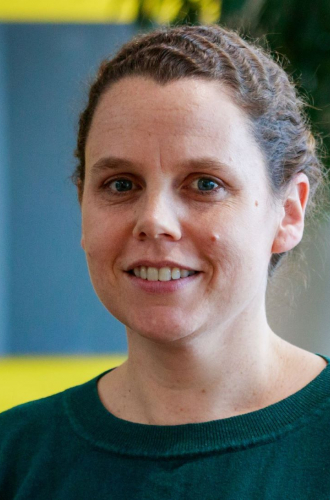-

-
Caroline E Farrior
Associate Professor
Department of Integrative BiologyTheoretical and empirical plant ecology; Role of plant communities in the global carbon cyclecfarrior@utexas.edu
Phone: 512-232-6922
Office Location
PAT 506A
Postal Address
2415 SPEEDWAY
AUSTIN, TX 78712-
B.A., Biology, University of Pennsylvania (2007)
Ph.D., Ecology and Evolutionary Biology, Princeton University (2012)
Postdoc, Princeton Environmental Institute (2012 - 2014)
Postdoc, National Institute for Mathematical and Biological Synthesis (2014 - Spring 2016)
Research Summary:
My research is motivated by a desire to understand the interacting mechanisms that drive variation in plant communities across environmental gradients. I work to scale across individual-level, community-level, and landscape-level feedbacks. This incorporates the importance of the environment, plant physiology, and competitive pressure from neighbors. Specifically, I focus on understanding plant allocation patterns (leaves, wood, and fine-roots) and their dependence on light, rainfall regime, nitrogen, with implications for feedbacks to elevated atmospheric CO2.
Because these questions can be difficult to address solely with observations or experiments, my research combines theoretical and empirical approaches. I build simple tractable models to interrogate the functioning and importance of specific mechanisms. I accompany these models with more realistic simulation models to validate that understanding and make quantitative predictions. Most importantly, I motivate, parametrize, and test all theoretical work with experiments and observations in the field.
Ongoing projects include: (1) understanding the balance between forces of competition and disturbance on plant hydraulic strategies (2) understanding biome boundaries, particularly forest to grass transitions (3) mechanistic scaling of carbon storage from plot level measurements.
-
Selected Publications:
2016 Farrior, CE, SA Bohlman, S Hubbell, and SW Pacala. Dominance of the suppressed: Power-law size structure in tropical forests. Science 351(6269):155-157.
2015 Weng, ES, S Malyshev, JW Lichstein, CE Farrior, R Dybzinski, T Zhang, E Shevliakova, and SW Pacala. Scaling from individual trees to forests in an Earth system modeling framework using a mathematically tractable model of height-structured competition. Biogeosciences 12:2655-2694.
2015 Farrior CE, I Rodriguez-Iturbe, Dybzinski R, SA Levin, and SW Pacala. Decreased water limitation under elevated CO2 amplifies potential for forest carbon sinks. PNAS 112: 7213-7218.
2015 Dybzinski, R, CE Farrior, and SW Pacala. Increased forest carbon storage with increased atmospheric CO2 despite nitrogen limitation: a game-theoretic allocation model for trees in competition for nitrogen and light. Global Change Biology 21:1191-1196.
2014 Farrior CE. Competitive optimization models, attempting to understand the diversity of life. New Phytologist 4:1025-1027.
2013 Farrior, CE, D Tilman, R Dybzinski, PB Reich, SA Levin, and SW Pacala. Resource limitation in a competitive context determines complex plant responses to experimental resource additions. Ecology 94:2505-2517.
2013 Farrior, CE, R Dybzinski, SA Levin, and SW Pacala. Competition for water and light in closed-canopy forests: a tractable model of carbon allocation with implications for carbon sinks. The American Naturalist 181: 314-330.
2011 Dybzinski R, CE Farrior, A Wolf, PB Reich, and SW Pacala. Evolutionarily stable strategy carbon allocation to foliage, wood, and fine roots in trees competing for light and nitrogen: an analytically tractable, individual-based model and quantitative comparisons to data. The American Naturalist 177: 153-166.
-





